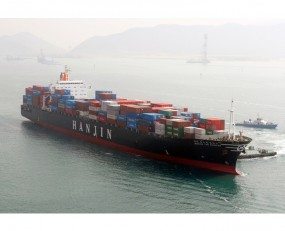
The fall-out from the administration of Hanjin Shipping is predictably affecting customers, suppliers and even competitors. The scramble for space is shoving-up freight rates but also port fees on the routes that Hanjin was a force on, whilst shippers are left trying to work-out where their containers have gone to.
Freight forwarders however are in an odd situation by virtue of their position as middle-men. A briefing by the law firm Holman Fenwick Willan points-out that forwarders could be held liable by shippers for cargoes that they have handled and that are on Hanjin vessels. This situation is complicated by the fact that any claim against a forwarder may not simply be about final access to the cargo but also any delay to consignments.
Much of the cargo being moved was consumer electronics from South Korean manufacturers destined for sale at Christmas in Western markets. Such shipments will be near worthless if they are late.
Yet other creditors, such as ports, container leasing companies or drayage/road hauliers could also be looking to assert their claims and they have the advantage of being nearer the physical cargo. Forwarders may be some way from the front of the queue when attempting to access any consignment.
They also face the additional risk of losing shipping slots they have paid Hanjin for in advance. For companies heavily exposed to routes out of Korea this could represent a substantial financial hit.
It is possible that these problems could be significant, if not resolved, then mitigated reasonably quickly. Hanjin Group which is the owner of Hanjin Shipping, appears to be moving to inject funds into its subsidiary although this may only be enough to enable the vessels to be returned to Korea rather than deal with the lines’ creditors. Even in the better scenario where the owners and the South Korean Government finally step-in to revive the container line, delay is still one of the biggest threats to all of those who are owed money by Hanjin Shipping.
One possible further effect of the problems at Hanjin is to remind customers of the need to assess supply chain risk. Doing business with customers or suppliers that are not financially stable can have hidden threats, something that could become a problem for any weaker shipping line in the near future.
Source: Transport Intelligence, September 6, 2016
Author: Thomas Cullen